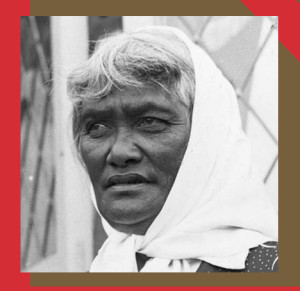Princess Te Puea Herangi (9 November 1883 Р12 October 1952) was a Maori leader in New Zealand during the First World War. She actively campaigned against the conscription of Maori men from the Waikato area due to her Grandfather, King Tāwhiao, proclaiming that no more blood should be spilled after making peace with the Crown in 1881 and forbidding Waikato to bear arms ever again.
Princess Te Puea Herangi was a free spirit when she was younger. During her young adult life she became somewhat distant from her own people when she met a young European man. However, she was always destined to be a great leader and was singled out as a child by her uncle, Mahuta, for having special abilities. With this he passed on all his extensive knowledge to her about Kingitanga (The King movement) and her people. Unsurprisingly, he convinced her to come back to her duties as a Māori princess to the cause of the Kingitanga and her people.
Te Puea became firmly established as a leader amongst the Tainui people during the First World War for her active campaigning against the forced conscription of the Tainui. There was still alienation amongst the Tainui since the British confiscated and occupied their lands and did not believe in fighting again, especially on behalf of the British Crown. Initially, the conscription act was only targeted at non-Māori (Pākehā) but active Māori politician Maui Pomare wanted it to include everyone. This identifies that every Māori was of different views but the most opposition to this act came from the Waikato area. So just to bring more offence, this conscription act only applied to the area from Tainui, Waikato. Te Puea could not stand for this, so she gathered all men from those areas that were of eligible and resisted conscription into to one place and stood and fought for them. Many names she was called for this and many truly believed that it was because she sympathized with the Germans. The men who resisted conscription were consequently arrested for objecting to fight and were sent to a prison camp in Auckland. Te Puea would follow them up there and wait around the prison camps so that they knew that her presence was there and they were not alone.
Throughout the rest of her life Princess Te Puea gave her unconditional support to the Kingitanga and re-built her lands up to what they were before the British Crown had confiscated them. Princess Te Puea is truly an inspirational woman whose main focus was of the welfare and beliefs of her people. She was not a German sympathizer but a Princess of the native people of Waikato.

